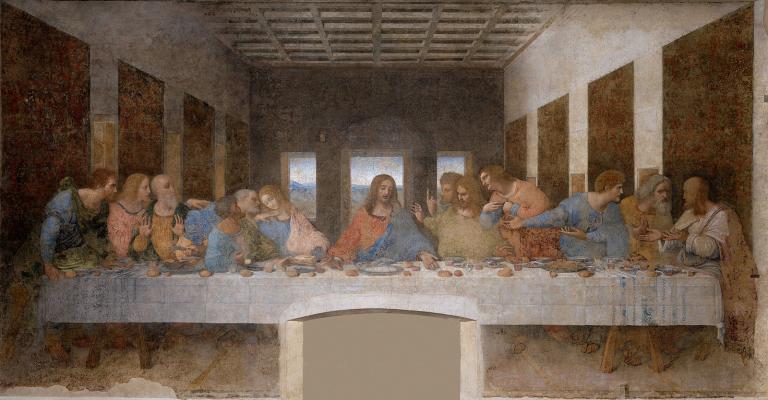 After I wrote a little article at Anglican Pastor on the question of women’s ordination (“God Is Not Fair”), I received about thirty comments, divided roughly equally between those who liked it and those who did not.
After I wrote a little article at Anglican Pastor on the question of women’s ordination (“God Is Not Fair”), I received about thirty comments, divided roughly equally between those who liked it and those who did not.
Anglican scholar and NT professor at Wheaton College Esau McCaulley took up my article at his own blog. Like another respondent at AP, he complained I was “uncharitable” for assuming that the issue of fairness was the “primary argument” for pro-WO scholars. Because I did not engage with other scholars and their arguments, my plain-sense-of-the-text reading was a “caricature.”
McCauley was bothered that I did not makes sense of “all these texts” that bear on the subject, and suggested that my little piece amounted to “lobbing texts” at supporters of WO. He says that in my reading of 1 Tim 2.12 I “maintain that it prevents women from speaking and therefore leading men in church.”
I am puzzled by these assertions. In my little article I did not mention one scholar. I never said this was a “primary” argument of anyone. Instead I aimed at this one argument that has indeed popped up among scholars and is common in the churches today.
I never said anything about preventing women from speaking or leading men (in any way) in church. I did talk about pastoring churches, but that is not the same thing as leading men in, say, a Bible study as Priscilla did with Apollos.
Here is my final response to several of the critics in the comments beneath my AP piece. I include it because it speaks to McCauley’s complaint about my using God’s fairness as an issue.
I almost chuckled when I read the comments from an Anglican brother that I was “academically irresponsible” and “uncharitable” and ought to feel “shame” because I made an argument from the plain sense of the text.
It seems he thinks I was uncharitable because I suggested that some scholars have argued for WO from the theological maxim that God is just.
Yet this is indeed the case. Alan Padgett has used, among other principles, “a strong biblical witness to justice.” Rebecca Groothuis has argued from “the priesthood of all believers . . . and the equality in spiritual status of women and men in Christ” against the traditionalist “caste system” that prescribes gender roles. It is “unfair,” she wrote, when authority is given to men and not to equally deserving women. The legendary Krister Stendahl insisted that if “emancipation” of slaves and women was right and just, then WO must also be. Patricia Gundry made a case for WO based on “fully human” equality.
But it is not just scholars. I hear it in our churches: “It’s not fair if only men can be ordained. After all, God calls women to ministry too!”
For the record, Barbara Gauthier and I (with the help of two other women and two other men) wrote a long piece on this question. We engaged the arguments of the spring 2017 “Holy Orders Task Force Report,” interacting with the scholarly arguments there. Among many other things, we argued for a Marian charism through which God has given a multitude of ministries to women: prophecy, spiritual motherhood, faith and evangelism, teaching, hospitality and helps, corporal works of mercy, and mentoring.
We pointed to Macrina (theologian with Gregory of Nyssa), Dominca (spiritual mother, lifelong service to the Christian community, gifts of healing prayer and prophecy), Hilda of Whitby (educator and diplomat), Walburga (missionary work with Boniface), Milburga of Shrewsbury (abbess, gifts of evangelism, pastoral care, physical healing, and spiritual deliverance from sin’s power), Clare of Assisi (foundress of Franciscan order to care for the poor), Hildegard von Bingen (mystic, herbalist, spiritual writer, composer), Catherine of Siena (mystic author, nurse of the critically ill, catalyst for reformation of the papacy), and Teresa of Avila (mystic, reformer of the Carmelite order, businesswoman, prolific author on prayer).
The Anglican brother who faults me for not tangling with scholars such as NT Wright and John Stackhouse on this issue should know that I am friends with both and am familiar with their arguments. Truth be told, at one time I agreed with them and even blurbed Stackhouse’s books on this subject. If this Anglican brother thought about it, he might recognize that some of the arguments I made in my little piece above were directed at common pro-WO arguments.
I tried to stick to the logic of the plain sense of the text, which is a Reformation hermeneutic that Anglicans should take seriously. That does not mean that historical criticism cannot help us. But for every “contextual” argument that is advanced above for WO, there are plenty of counter arguments that can also draw from history and literary context. The debate back and forth is endless.
As Anglicans we should sit at the feet of the Fathers and ask why they opposed WO. We should also ask why the whole tradition, with few exceptions, opposed WO until the 1960s. As members of ACNA, we should take seriously the unanimous statement by the College of Bishops that WO is a “recent innovation” and has “insufficient scriptural warrant.”
It is telling that learned scholars are deeply divided on this important question. It is also telling that tradition has been against it. As a Church that reads Scripture through tradition, we should spend at least as much time trying to understand the logic of the Tradition as we do arguing the latest results of biblical scholarship.










